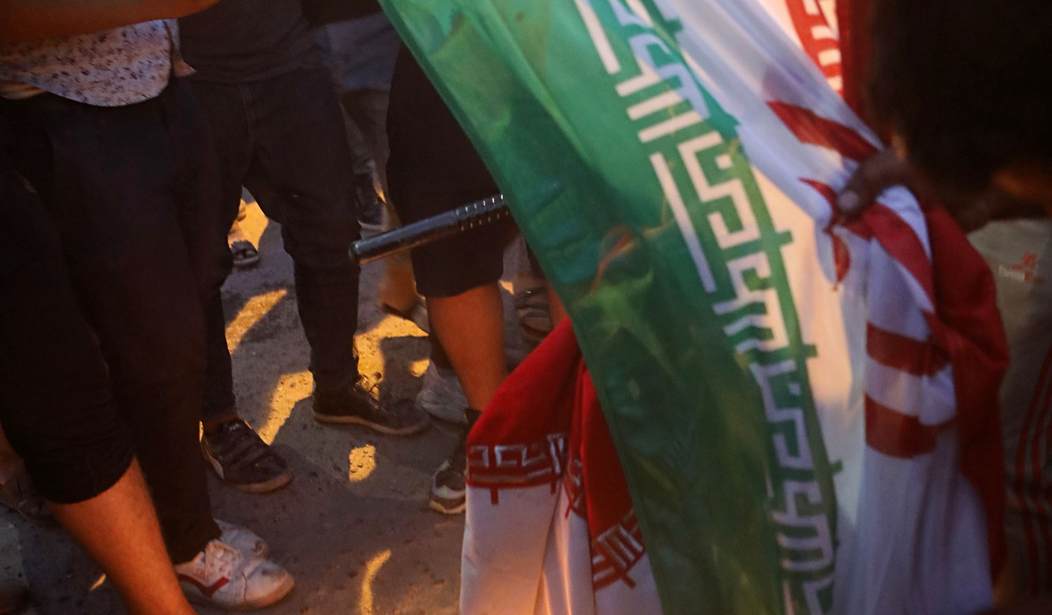Every summer for several years, a delegation of British MPs and human rights advocates have attended an international gathering in Paris organized by the foremost Iranian pro-democracy opposition group. Sadly, the event had to be cancelled this year, another victim of the coronavirus pandemic. However, that did not stop the National Council of Resistance of Iran (NCRI) from providing an international platform for those critical of the theocratic regime in Tehran. Nor did it prevent British supporters of the NCRI contributing to those calls.
As with the prior gatherings, the virtual event - dubbed the Free Iran Global Summit - gave voice to international support for the Iranian people in the face of egregious conduct by officials of the Tehran regime.
Much of the second session of the three-day summit was devoted to the issue of political imprisonment and other human rights abuses in the Islamic Republic. Many participants, including members of the United Kingdom contingent, made a point of demanding more effective action from the international community.
Sunday’s videoconference had contributions from survivors and eyewitnesses of Iran’s decades-long pattern of human rights violations. Prominent among them were witnesses to an event that has been widely described as the “worst crime of the Islamic Republic”. Those were, in fact, the exact words used by the late Hossein Ali Montazeri in an audio recording that was leaked to the public in 2016. Until the recording was released in 1988, Montazeri had been the designated successor to Ayatollah Khomeini as head of the clerical regime. However, he was ousted from the regime entirely after objecting to that year’s systematic massacre of political prisoners.
Approximately 30,000 people were killed over the course of several months in 1988, the catalogue of known victims including teenagers and pregnant women. Mass hangings were preceded by perfunctory trials, more akin to interrogations, some of which resulted in death sentences after only a minute or two’s consideration. Political prisoners throughout the country were hauled before “death commissions,” where judges probed their political ideologies and then demanded that they disavow their affiliations.
Recommended
In the vast majority of cases, the offending affiliation was to the Iranian opposition group, the People’s Mojahedin Organisation of Iran (PMOI/MEK), which had helped to overthrow the Shah’s regime in 1979 but had become the leading proponent of a democratic alternative to the emerging system of absolute clerical rule.
A full account of that massacre has yet to be written, and the exact number of victims may never be known; the regime has since paved over some of the mass graves in which victims were buried. But there is still much that could be learned via a full, UN-led investigation, which is what supporters of the Iranian Resistance have been urgently advocating for many years. That call was echoed in Amnesty International’s 2018 report Blood-Soaked Secrets.
Western governments have unfortunately been slow to respond, but signs of progress recently emerged from Washington, when on July 17, the State Department repeated the call for an international investigation and urged individual governments to “provide accountability and pursue justice for the regime's many victims.”
While some governments have demanded that Tehran conduct its own investigation into these matters, experienced critics of the regime dismiss that approach as futile. The regime’s utter lack of interest in accountability was demonstrated by Montazeri’s ouster in 1988, and has been underlined many times over by the repeated promotion of officials who not only participated in the massacre but have publicly defended their role by crassly asserting that the MEK brought it on themselves.
If European governments pay due attention to the State Department’s call and to the numerous appeals to uphold human rights that were made in the Free Iran Global Summit, they will be well positioned to call for the removal of immunity that officials of the regime currently enjoy.
A comprehensive, internationally backed investigation into the regime’s criminal history and its continuing abuses is essential. In its absence, Iran’s activist community is at risk of further assaults, which could very well creep toward the sorts of death tolls not seen there since the 1980s. Between 2018 and 2019, the regime’s brutality grew by several orders of magnitude. A nationwide uprising at the beginning of that period resulted in several dozen deaths, whereas a staggering 1,500 died in a comparable uprising last November.
Anyone who is concerned about human rights must remember the common wisdom that those who do not learn from the mistakes of history will be doomed to repeat them. In this case, the history we risk repeating is the silence and ignorance that prevailed around the world while Iranian prisoners were being slaughtered.
The pain would be borne by the Iranian people, but the rest of the world would be left to live shamefully in its shadow.
The Right Honorable David Jones MP is a leading member of the British Committee for Iran Freedom. He has held several ministerial posts in Westminster; most recently as Minister of State at the Department for Exiting the European Union.

























Join the conversation as a VIP Member